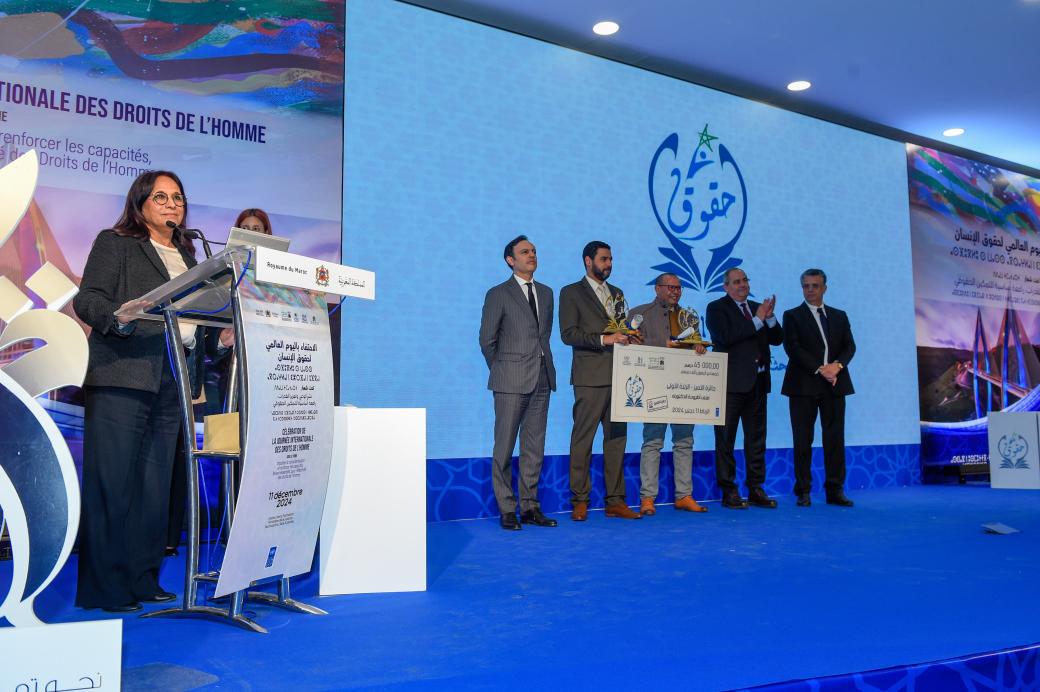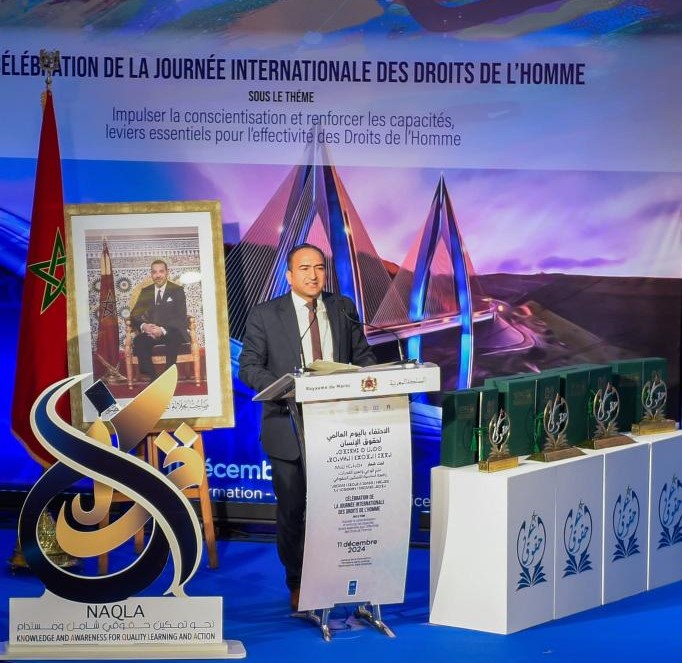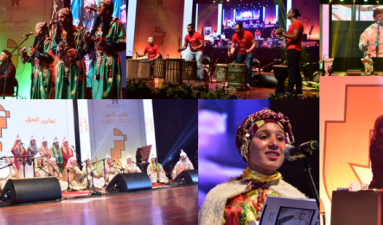
Ms. Amina Bouayach, Chairperson of the National Human Rights Council (CNDH), participated on Wednesday, December 11, 2024, in an meeting organized, by the Interministerial Delegation for Human Rights in partnership with the Ministry of Justice, CNDH, and Mohammed V University in Rabat, to commemorate Human Rights Day.
In her statement delivered on her behalf by Mr. Mohamed El Hachmi, Director of Studies and Research at the CNDH, Ms. Bouayach stressed that the commemoration of Human Rights Day represents a moment for reflection and evaluation of efforts to implement the principles of the Universal Declaration of Human Rights (UDHR). She noted that this year’s UN theme, “Our Rights, our Future, Right Now,” comes in an international context marked by escalating tensions and conflicts that exacerbate human rights violations. She added that narratives questioning the universality of human rights principles, the politicization of discussions and double standards contribute to undermining efforts to protect and promote human rights.

Addressing the global state of human rights amidst ever-changing contexts, which continuously renew the question of achieving the universality of human rights and the unfinished journey toward it, Ms. Bouayach underscored that the CNDH welcomed the Moroccan government’s decision to vote in favor of the “Global Moratorium on the Legal Implementation of the Death Penalty,” considering it a significant move toward the legislative abolition of this capital punishment and thus a historic milestone in human rights protection.
Investing in Knowledge to Address Emerging Challenges
CNDH Chairperson also shed light on the necessity of investing in knowledge as a foundation for addressing violations and supporting victims. She highlighted that this concern has been instrumental in enabling the CNDH to advance Morocco’s national human rights protection system. She also emphasized the importance of collaboration between the CNDH and Moroccan universities, identifying them as strategic partners in building scientific knowledge necessary to navigate human rights challenges. She described universities as sources of rights capable of shaping pathways toward appropriate solutions.
Ms. Bouayach added that the CNDH is commitment to promote human rights education as a fundamental gateway for promoting human rights knowledge through educational and awareness-raising activities. These efforts include a wide range of initiatives such as human rights clubs and other national, continental, and international activities.
In this context, she highlighted the CNDH “Human Rights Agora” initiative, which aims to open dialogue between researchers and stakeholders to discuss issues related to the effectiveness of human rights and freedoms. She also underlined the significant importance that the 20th anniversary activities commemorating Morocco’s transitional justice experience- organized by the CNDH throughout the year- placed on the role of scientific research and capacity building. These efforts stand as testament to the ability of institutions and society to address emerging issues and develop measures to protect human rights.
Addressing emerging challenges, CNDH Chairperson noted that climate change and Artificial Intelligence (AI) represent two major challenges in the field of human rights. She stated that climate change is no longer a hypothesis but “a reality we all experience and suffer its consequences,” while AI raises issues related to “combating discrimination, the spread of misinformation and fake news, and violations of privacy.”
Alongside this event, Ms. Bouayach participated in the ceremony for the “Excellence Award for Scientific Research in Human Rights” and announced the CNDH’s decision to publish the dissertation that earned first prize. She further revealed plans to distribute it to universities and institutions to maximize its benefit.
Commemorating Human Rights Day, participants emphasized the importance of adopting a human rights-based approach in light of global developments. They stressed the need to combat negative stereotypes and misconceptions that hinder national efforts for the effectiveness of human rights, as both a culture and a practice.

